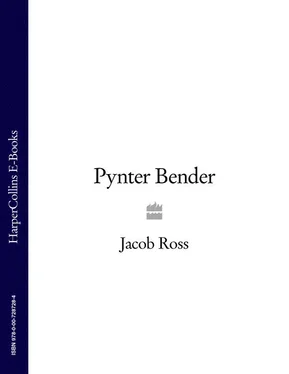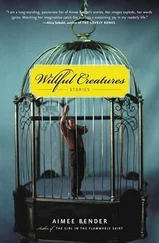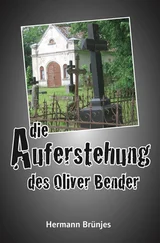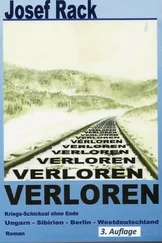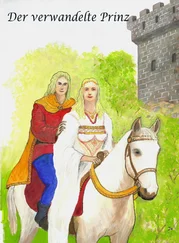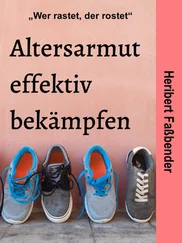You didnt look like no old man to me. Wasnt no old fella I see when I look and wasnt what I see afterwards .
I dont know why it had to take three months of getting up early in the morning and saying Good Morning Missa Manuel befo I work meself up enough to tell you what I want. And it wasnt no old fella lookin at me when I ask you first time even if you look at me as if I mad .
I keep asking till I wear you down. After a little time I see you couldnt hide behind your age no more because all thats left was a man looking at a woman .
That was how I come to feel alright again since my father leave, because after that I was going to have something dat bilong to me .
What I never understand …
He could not find the leaf that would have told him what she never understood. Not a whole one, but fragments that, whichever way he placed them, did not fit together …
… dam fool to believe ——
—— crazy l ——
—— y —— mother and all th ——
—— love and ——
—— chilren who is ——.
—— dam fool ——
—— hatin all —— —— nofabitch tha —
How did it end? Was it with love and —— or was it with — — hatin all ——?
Uncle Michael’s words were stranger than his mother’s, colliding in odd and unexpected ways.
moon over your shoulder shadow in my eyes .
Today you looked much older.
Today I made you cry.
Aruba, May 1945
And it was strange that even when he’d forgotten them, it still felt as if they’d left some part of themselves inside his head. Short words, not half as long as his mother’s; sometimes a line running across a page – like a tiny ant-trail against a vast white desert.
Day yawns, cracks the egg of dawn. A coq - soleil’s sopranoing rises and circles a clean sun . Panama, August 1947
Those words did not help him understand why his uncle never wanted children. They were like the doorway that had invited him into this abandoned room. Everything was laid out before his eyes but their messages remained hidden. A darkened room that was as full of stories as the women in the river. Only these were littered in untidy heaps across the dusty floor, and stranger to him than anything he’d ever heard before.
It going to be quiet up there , his father had told him, but it was not quiet in his head. He missed the voices of the women in the yard. The foolish and the awful things they talked about and laughed over. He missed his fights with Peter and above all he missed his auntie’s hands.
Now that the dry season had come, his aunt, Tan Cee, would be down there among those tiny black dots crawling along the green edges of the never-ending fields of sugar cane. Patty the Pretty would be home because Leroy had taken her out of cane. They would no doubt be doing what his grandmother said his youngest aunt always did when Leroy was around: trying for a child.
He never wondered what that meant. It was some kind of magic between adults that involved hiding themselves away and, if he were to judge by what he saw from Patty, looking very sleepy and smiling all the time.
Tan Cee would be down there with the men, swinging her machete at the roots of the cane, his mother just behind her, gathering them in bundles, tying them and lifting them over her head onto the tractors that looked like big yellow beetles from where he stood. Home was just a walk away, but from here it seemed as if it would take an entire lifetime to reach them.
He wondered if Birdie was with them, then he remembered Tan Cee saying that Birdie only ever sweated over bread.
It was quiet up here. The quietness stretched beyond the house. At the back of it, the land ran wild for miles, all the way past the hellish quarry-land of Gaul through to Morne Bijoux on the other side of the ridge of hills that separated them from the rest of the world. Afternoons, when the heat of the day pushed the old man into a deep sleep, he left the room and retreated into the bushes, making his own little pathways among the borbook and black sage.
There was a long, narrow ravine that went down to a tall wall of plants with bright blossoms. His first few visits there, he couldn’t figure out why everything seemed to be either in fruit or flowering when everything else around was dry. He had gone closer, to examine those heavy deep-scented flowers, when he felt himself falling. He landed in a tangle of wist vines, was shaken but not hurt. Sat there while his eyes adjusted to the thick green light.
He was in a gully that he would never have known existed had he not fallen through the bush that covered it like a roof. The earth was dark with dampness, though it hadn’t rained for weeks. It was cool here too, like the riverbank. There were the same darkish odours of growth and fermentation.
He began picking his way through the tangle. This place puzzled him. The earth was covered with guavas. They hung thickly from the branches above his head. A slight brush of his fingers and they fell into his hands. Wherever there were guavas there were serpents. Santay had told him about the reddish ones that grew long and fat and wrapped themselves in tight knots around the branches. And sure enough he saw them, untying themselves, their heads stretched out towards him, their tongues flickering like small flames in their mouths. He made a hammock of his shirt, selected the fruits he wanted and left there quickly. Later, in the dimming light of the late evening, he sat on the steps and broke open the fruit, tasted each one tentatively before stuffing himself full.
He came back to that place often, because he could find food there. He found crayfish canes and water lemons further down the gully, and a little walk beyond that, sapodillas and star apples. Everything was growing there in that long green tunnel of light and leaves, a secret place that only he, the birds, the millipedes and serpents knew about. He called it Eden.
It was during one of his visits there that Gideon came. When Pynter returned to his father’s house, he heard a new voice pitched high and fast. It sounded like an argument. His father’s rumblings were soft and subdued against the other. Miss Maddie was bending over a pepper plant on the side of the house, a can of water in her hand. His father was lying back on the canvas chair. A man in a pressed blue shirt sat on a chair he had taken from the living room. His legs were close together and he was leaning forward slightly. There were papers on the bed.
The stranger turned and saw him, looked at him as if he knew him. His eyes paused on his face, then dropped to his naked feet. They stayed there a while before travelling back up to his face again. Pynter was suddenly aware that he hadn’t washed his hands. Hadn’t poured water on his feet and cleaned them in the grass outside. He felt an urge to go outside and do it.
‘So you the one they call Half Pint?’ The man was showing him his teeth. His face was strange. It was long like his father’s but thinner, with all the bones showing through. His eyes were round and bright like polished marbles and when he spoke, his lips hardly moved.
‘Pynter,’ his father said, ‘dis is Gideon, your brother.’
Gideon closed his mouth as suddenly as he’d opened it to show his teeth. He turned back to face the old man. ‘So, how you gettin on, Ole Fella?’
‘Don’t “Ole Fella” me, I your father. Pynter?’
‘Pa?’
‘Say hello to your brother, Gideon.’
Gideon threw a quick sideways glance at him. ‘I met the boy already.’
Читать дальше
